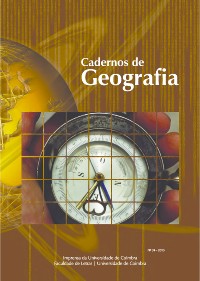Please use this identifier to cite or link to this item:
https://hdl.handle.net/10316.2/38316| Title: | Avaliação quantitativa do valor geoturístico do geopatrimónio: caso do Litoral Sul Paraibano, Brasil | Other Titles: | Quantitative assessment of geotouristic value of the geoheritage: case of Paraiba South Coast, Brazil | Authors: | Pereira, Luciano Schaefer Nogueira, Helena Marques |
Keywords: | Quantitative Assessment;Geotourism;João Pessoa;Southern Coast;Avaliação quantitativa;Geoturismo;João Pessoa;Litoral sul | Issue Date: | 2015 | Publisher: | Imprensa da Universidade de Coimbra | Abstract: | Uma estratégia completa de avaliação da inserção da atividade geoturística em uma determinada área
baseia-se na sistematização que envolva um plano de ações sequencial: identificação, inventariação, avaliação
quantitativa, classificação, conservação, valorização, divulgação e, finalmente, o monitoramento dos sítios ou
locais de interesse que compõem o geopatrimónio, ou seja, aqueles elementos que representam a geodiversidade
da área mapeada. Neste trabalho, propomos uma nova metodologia de avaliação quantitativa do potencial
geoturístico e da necessidade de proteção de sítios, para ser aplicada no município de João Pessoa, Paraíba, e
parte do litoral sul, distante 54 Km da capital. O potencial geoturístico foi determinado baseando-se em dois
critérios ponderados, dos quais foram calculados seus índices de valor: valor de uso turístico, com dez indicadores,
pontuados de 1 a 5, com pesos diferenciados; valor intrínseco, com sete indicadores, pontuados de 1 a
5, com pesos diferenciados. Posteriormente, a partir da necessidade de proteção dos sítios, uma vez que a
atividade geoturística gera impactos onde se desenvolve, foi calculado o Índice de Vulnerabilidade dos sítios, a
partir de dez indicadores, pontuados de 1 a 5, com pesos diferenciados. A Taxa de Risco Iminente, que resume
aqueles sítios onde a vulnerabilidade é maior, foi calculada a partir do Índice de Vulnerabilidade, com peso 1,
e dos Índices de Uso Turístico e de Valor Intrínseco que, somados, apresentavam peso 1. A full strategy to assess the insertion of geotouristic activity in a given area is based on the systematization involving a plan of sequential actions: identification, inventory, quantitative evaluation, classification, conservation, appreciation, divulgation and finally, the monitoring of the sites or locals of interest comprising the geoheritage, i.e., those elements which represent the geodiversity of the mapped area. In this paper, we propose a new quantitative methodology for assessing the geotouristic potential and the need of protection of sites, to be applicated in the city of Joao Pessoa, Paraíba, and part of the south coast, distant 54 km from the capital. The geotouristic potential was det ermined based on two weight ed criteria, of which their indexes were calculated: Touristic Use Value, with ten indicators, ranked from 1 to 5, with different weights; Intrinsic Value, with seven indicators, ranked from 1 to 5, with different weights. Later, from the need to protect the sites, since geoturistic activity generates impacts where develops, we calculated the Vulnerability Index of sites from ten indicators, ranked from 1 to 5, with different weights. The Imminent Risk Rate, summarizing those sites where the vulnerability is greater, was calculated from the Vulnerability Index, weighing 1, from Tourist Use Indices and Intrinsic Value which together had weight 1. |
URI: | https://hdl.handle.net/10316.2/38316 | ISSN: | 0871-1623 2183-4016 (digital) |
DOI: | 10.14195/0871-1623_34_6 | Rights: | open access |
| Appears in Collections: | Cadernos de Geografia |
Files in This Item:
| File | Description | Size | Format | |
|---|---|---|---|---|
| avaliacao_quantitativa_do_valor_geoturistico_do_geopatrimonio.pdf | 19.82 MB | Adobe PDF |  |
Items in DSpace are protected by copyright, with all rights reserved, unless otherwise indicated.
